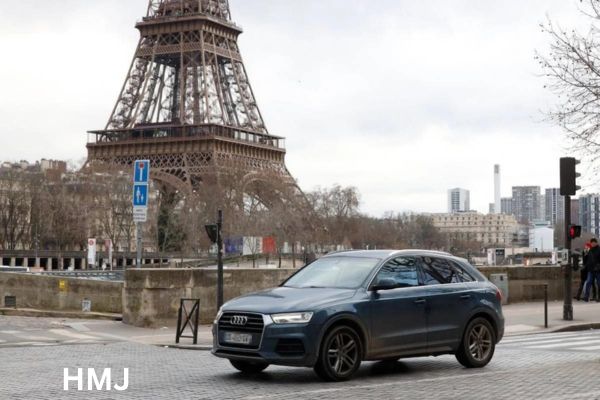Paris in a Parking Uproar: SUV Fees Tripled! Parisians Head to Polls on Controversial SUV Parking Fees Find Out How the City’s Battle Against Big Cars is Shaping Up in the Heated Referendum.
Polling stations in Paris are buzzing with debate as residents cast their votes in a contentious referendum proposing a threefold increase in parking fees for SUVs. The proposed change has stirred opposition from drivers’ groups and ignited a fierce battle against city hall.
Approximately 1.3 million Parisians are eligible to participate in the referendum, which suggests imposing an 18 euros ($19.50) per hour parking charge for cars weighing 1.6 Tonnes or more in central areas, and 12 euros in peripheral zones. Fully electric cars would need to exceed two Tonnes to fall under the proposed regulation. Certain groups, including residents, taxi drivers, healthcare workers, and individuals with disabilities, would be exempt.
Paris’ Socialist mayor, Anne Hidalgo, defended the measure, stating, “The bigger they are, the more they pollute.” Hidalgo, known for her commitment to reducing car usage and emissions, has previously implemented pedestrian zones and expanded the city’s cycling infrastructure.
Environmental advocacy group WWF has labeled SUVs as an “aberration,” asserting that they burn 15% more fuel than traditional coupes and incur higher manufacturing and purchasing costs. Safety concerns related to the increased weight and height of SUVs have also been raised by city hall, claiming they are “twice as deadly for pedestrians as a standard car” in accidents. Additionally, the vehicles are criticized for consuming more public space on roads and parking.
Paris authorities contend that the average car has gained 250 kilograms (550 pounds) since 1990, further justifying the need for measures to curb the proliferation of SUVs.
However, drivers’ groups have vehemently opposed the initiative. Yves Carra of Mobilite Club France criticized the “SUV” classification as a “marketing term” with no clear definition. Concerns were raised about the imprecise targeting of the referendum, leading conservative opposition figures to accuse the city government of manipulation.
Critics argue that not all SUVs would be affected, specifically exempting compact SUVs, while imposing higher fees on family-sized coupes and estate cars. Driver groups, such as 40 millions d’automobilistes, contend that a new SUV may pollute less than older diesel vehicles, challenging the city’s approach to pollution reduction.
Maud Gatel, an MP from the centrist MoDem party, questioned the environmental impact, suggesting that distinctions should be made between internal combustion, hybrid, and electric vehicles. Gatel also pointed out that the wide range of exemptions could leave nearly 27% of SUVs in Paris unaffected by the proposed parking fee hike.
David Belliard, Paris’ transport chief from the Green party, estimated that around 10% of vehicles in the city would be subject to higher parking fees, potentially generating up to 35 million euros annually.
This referendum on SUV parking fees in Paris has garnered attention across France, with the Green party mayor in Lyon planning a three-tier parking fee structure for residents and visitors starting in June. While the outcome remains uncertain, the controversy surrounding the proposal underscores the ongoing tension between environmental initiatives and concerns from drivers and opposition figures.
Paris’ last city referendum, held in April 2023, focused on banning hop-on, hop-off rental scooters and achieved approval with a turnout of only 7%.
